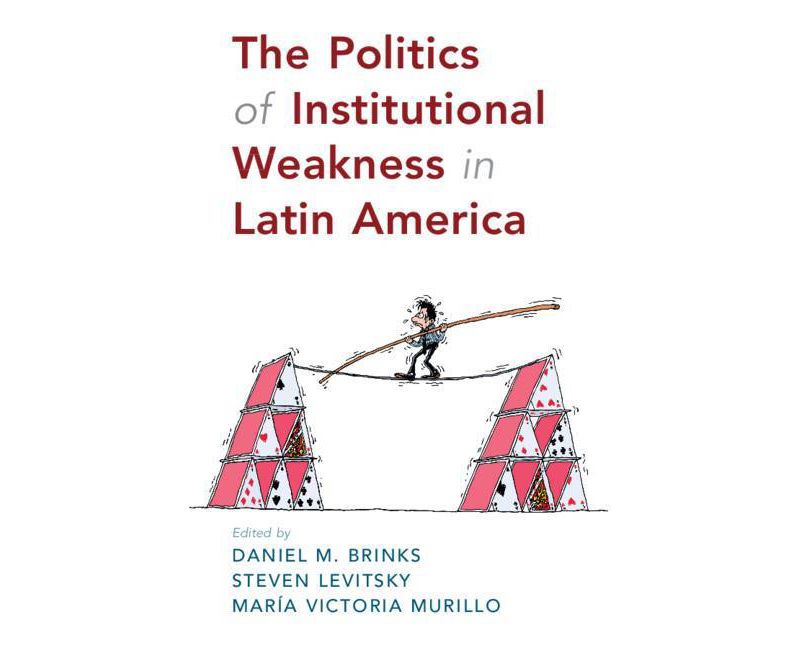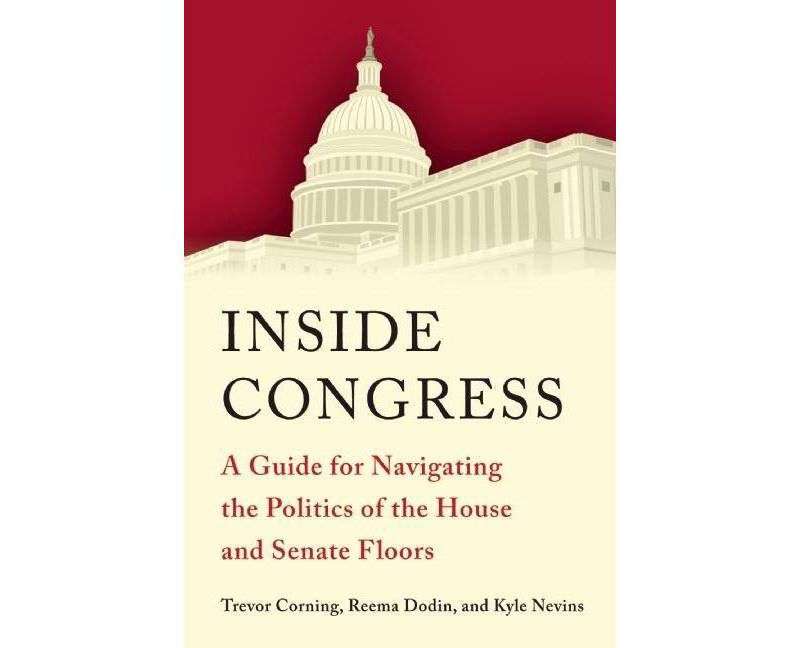Trusted shipping
Easy returns
Secure shopping
Buy The Politics of Institutional Weakness in Latin America - by Daniel M Brinks & Steven Levitsky & Mar'ia Victoria Murillo (Paperback) in United States - Cartnear.com

The Politics of Institutional Weakness in Latin America - by Daniel M Brinks & Steven Levitsky & Mar'ia Victoria Murillo (Paperback)
CTNR961851 09781108702331 CTNR961851Transformers
2027-01-12
/itm/the-politics-of-institutional-weakness-in-latin-america-by-daniel-m-brinks-steven-levitsky-maria-victoria-murillo-paperback-961851
USD
37.72
$ 37.72 $ 38.49 2% Off
Item Added to Cart
customer
*Product availability is subject to suppliers inventory
SHIPPING ALL OVER UNITED STATES
100% MONEY BACK GUARANTEE
EASY 30 DAYSRETURNS & REFUNDS
24/7 CUSTOMER SUPPORT
TRUSTED AND SAFE WEBSITE
100% SECURE CHECKOUT
Number of Pages: 376
Genre: Political Science
Sub-Genre: American Government
Format: Paperback
Publisher: Cambridge University Press
Age Range: Adult
Book theme: General
Author: Daniel M Brinks & Steven Levitsky & María Victoria Murillo
Language: English
'It is an agenda-setting book, with important theoretical and empirical contributions that are key to better understand politics in the region and elsewhere.' Laura Gamboa, Comparative Politics
'The editors of and contributors to this collection offer an important conceptual framework to explain why the formal institutions created ...' S. L. Rozman, Choice
'An all-star roster of scholars explores Latin America's most persistent political puzzle - the origins and impact of weak institutions. Institutional incapacity has a variety of faces, from insignificance by design, to non-compliance, to instability. Which version we observe can tell us a lot about the political forces at play. But you need a map, and you need to know how to read it. Brinks, Levitsky, and Murillo are master cartographers.' John M. Carey, Wentworth Professor in the Social Sciences, Dartmouth College
'Kudos to Brinks, Levitsky, and Murillo for this impressive volume. They have produced an agenda-setting book, including leading scholars, that significantly advances our conceptual, theoretical, and empirical understanding of institutional fragility in Latin America. The volume challenges the idea that weak institutions are an accident. To explain variations in institutional significance, stability, enforcement, and compliance, the book examines the coalitional bases, strategic causes, and political uses of a wide range of institutions and cases. This volume is a must read for comparative scholars interested in institutions, in general, and Latin American politics, in particular.' Deborah J. Yashar, Princeton University
'With this book, some of the best scholars in comparative politics hit a home run. The book is both a major contribution to institutional analysis and the best substantive overview of contemporary Latin American politics that I have read in many years.' James Mahoney, Northwestern University
Genre: Political Science
Sub-Genre: American Government
Format: Paperback
Publisher: Cambridge University Press
Age Range: Adult
Book theme: General
Author: Daniel M Brinks & Steven Levitsky & María Victoria Murillo
Language: English
About the Book
Rather than an unintended by-product of poor state capacity, weak political and legal institutions are often weak by design.Book Synopsis
Analysts and policymakers often decry the failure of institutions to accomplish their stated purpose. Bringing together leading scholars of Latin American politics, this volume helps us understand why. The volume offers a conceptual and theoretical framework for studying weak institutions. It introduces different dimensions of institutional weakness and explores the origins and consequences of that weakness. Drawing on recent research on constitutional and electoral reform, executive-legislative relations, property rights, environmental and labor regulation, indigenous rights, squatters and street vendors, and anti-domestic violence laws in Latin America, the volume's chapters show us that politicians often design institutions that they cannot or do not want to enforce or comply with. Challenging existing theories of institutional design, the volume helps us understand the logic that drives the creation of weak institutions, as well as the conditions under which they may be transformed into institutions that matter.Review Quotes
'It is an agenda-setting book, with important theoretical and empirical contributions that are key to better understand politics in the region and elsewhere.' Laura Gamboa, Comparative Politics
'The editors of and contributors to this collection offer an important conceptual framework to explain why the formal institutions created ...' S. L. Rozman, Choice
'An all-star roster of scholars explores Latin America's most persistent political puzzle - the origins and impact of weak institutions. Institutional incapacity has a variety of faces, from insignificance by design, to non-compliance, to instability. Which version we observe can tell us a lot about the political forces at play. But you need a map, and you need to know how to read it. Brinks, Levitsky, and Murillo are master cartographers.' John M. Carey, Wentworth Professor in the Social Sciences, Dartmouth College
'Kudos to Brinks, Levitsky, and Murillo for this impressive volume. They have produced an agenda-setting book, including leading scholars, that significantly advances our conceptual, theoretical, and empirical understanding of institutional fragility in Latin America. The volume challenges the idea that weak institutions are an accident. To explain variations in institutional significance, stability, enforcement, and compliance, the book examines the coalitional bases, strategic causes, and political uses of a wide range of institutions and cases. This volume is a must read for comparative scholars interested in institutions, in general, and Latin American politics, in particular.' Deborah J. Yashar, Princeton University
'With this book, some of the best scholars in comparative politics hit a home run. The book is both a major contribution to institutional analysis and the best substantive overview of contemporary Latin American politics that I have read in many years.' James Mahoney, Northwestern University










































